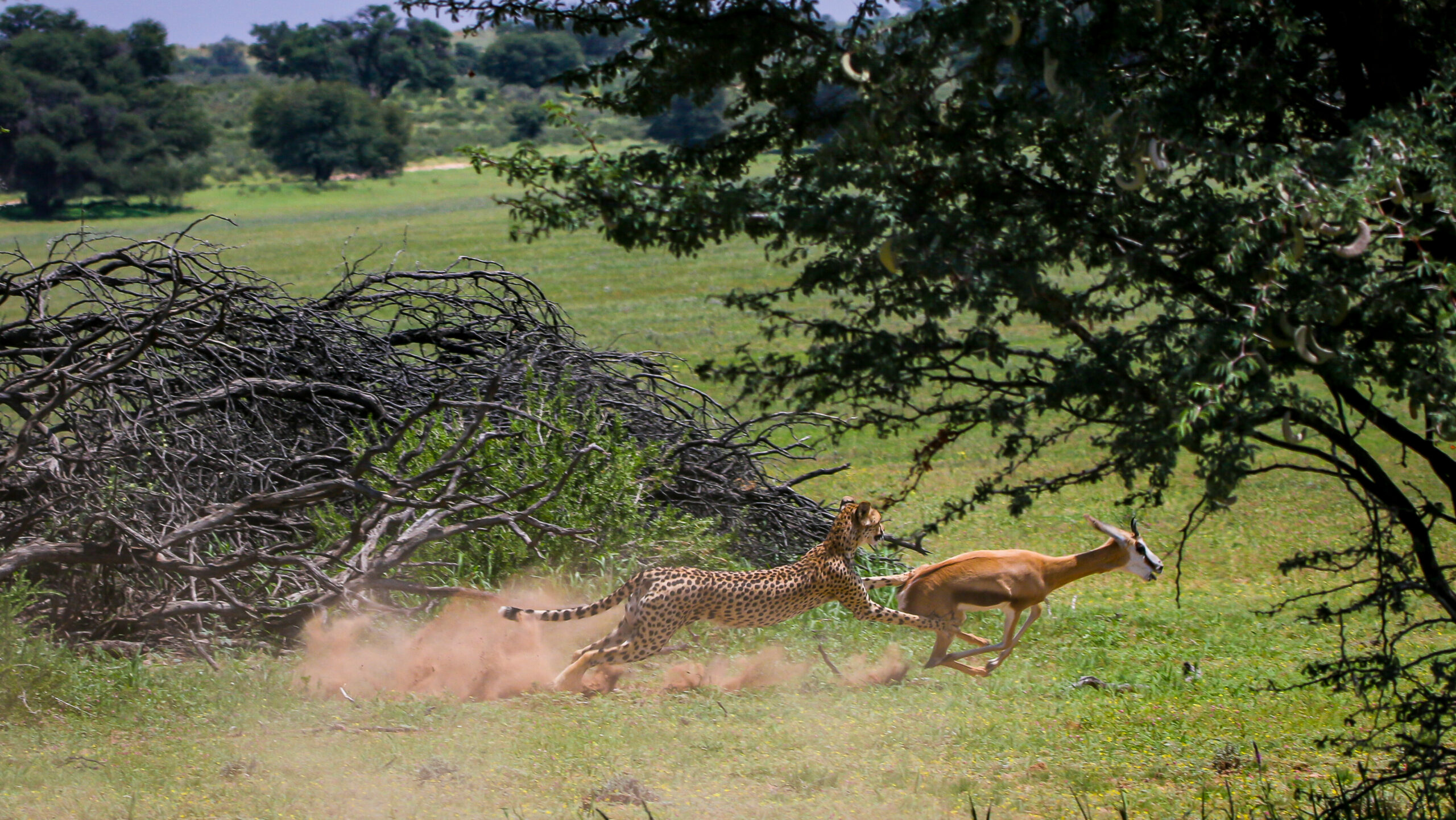

As we were driving through the Kgalagadi Transfrontier Park, we came across a remarkable sight: a cheetah lying next to the road with a springbok kill. It had just taken down its prey and was resting. We were a few minutes too late to witness the action, but it was still an incredible sighting.


The cheetah sat panting, catching its breath after the chase. We observed it patiently, hoping for another opportunity to witness its remarkable hunting abilities. Soon enough, a herd of springbok appeared in the distance, and we knew we had to wait and watch.


Without warning, the cheetah decided to go for another hunt. With lightning-fast reflexes, it sprang into action and chased after its prey. The springboks scattered, but the cheetah was quick to target a smaller, weaker animal from the herd.

The chase was short-lived, and in just a matter of seconds, the cheetah had successfully taken down its second prey. It was an incredible sight to see, and the rest of the springbok herd watched on in disbelief. The cheetah then settled down again and began feeding on the second carcass.

Cheetahs are known for their incredible speed and agility, which they use to their advantage while hunting. They are the fastest land animal in the world, capable of reaching speeds of up to 70 miles per hour in just a few seconds. They often stalk their prey for long periods, waiting for the perfect moment to pounce. Once they spot an opportunity, they use their speed to sprint towards their prey, overtaking them quickly and going for the kill.

Cheetahs have also adapted well to living in harsh desert environments, where food and water are scarce. They can go for long periods without water, as they can get most of their moisture from their prey. Their spotted coat helps them blend into their surroundings and avoid detection from both predators and prey.

In conclusion, witnessing a cheetah hunt is a once-in-a-lifetime experience. The cheetah’s remarkable speed and agility are a testament to its remarkable adaptation to its environment. It is truly a magnificent creature, and watching it hunt not one, but two bucks in a matter of minutes is a memory we will always cherish.
FAQs
- What is a cheetah?
A cheetah is a large carnivorous mammal found in Africa and parts of Iran. They are known for their incredible speed and agility, and they are the fastest land animal in the world. - How fast can a cheetah run?
A cheetah can run at speeds of up to 70 miles per hour in just a few seconds, making it the fastest land animal in the world. - How do cheetahs hunt?
Cheetahs typically stalk their prey for long periods, waiting for the perfect moment to pounce. Once they spot an opportunity, they use their speed to sprint towards their prey, overtaking them quickly and going for the kill. - What is the cheetah’s adaptation to its environment?
Cheetahs have adapted well to living in harsh desert environments, where food and water are scarce. They are able to go for long periods without water, as they can get most of their moisture from their prey. Their spotted coat also helps them blend into their surroundings and avoid detection from both predators and prey. - What did the author witness while driving through the Kgalagadi Transfrontier Park?
The author witnessed a cheetah taking down a springbok and resting near the road. Later, the cheetah chased after another prey and successfully took it down as well.
Please ‘SHARE’ this story with a friend or family member!





































